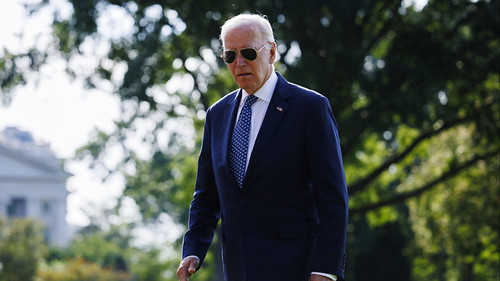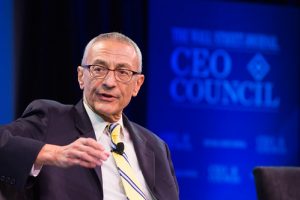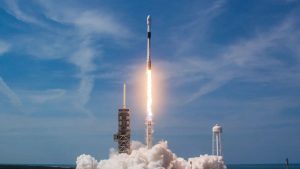Biden to block nearly $15B sale of US Steel to Japanese company despite CEO’s warnings: report

The Biden-Harris administration intends to block the proposed $14.9 billion sale of US Steel to Japanese conglomerate Nippon Steel, according to a report.
The reported move comes despite warnings from US Steel CEO David Burritt that the company would likely shutter steel mills and relocate its headquarters from Pittsburgh if the federal government stepped in to derail the merger.
Shares of US Steel plunged by more than 20% after it was reported that the administration would scupper the merger.
President Joe Biden is preparing to announce that he will formally block Nippon Steel from acquiring US Steel, according to The Washington Post.
The president, Vice President Kamala Harris and former President Donald Trump have all voiced opposition to the deal.
Some lawmakers have also objected on national security grounds despite the fact that Japan is a longtime US ally.
Pro-business groups such as the US Chamber of Commerce have criticized Biden for his stance, saying that blocking the move would send a “chilling signal” to other foreign companies who are interested in investing in US companies.
Earlier on Wednesday, US Steel warned that if the merger with Nippon Steel was off, it would put thousands of union jobs at risk.
The company also signaled that it would close some steel mills and potentially move its headquarters out of western Pennsylvania — a key swing state where voters will have a significant impact on the outcome of this year’s presidential election.
Nippons planned acquisition of the US steelmaker has faced growing bipartisan opposition, with Harris saying Monday she wants US Steel to remain American-owned and -operated.
Her Republican rival, Donald Trump, has pledged to block the deal if elected.
Harris and Trump are making intense efforts to woo Pennsylvania voters — with each of them having made several visits to the Keystone State.
We want elected leaders and other key decision makers to recognize the benefits of the deal as well as the unavoidable consequences if the deal fails, Burritt said in a statement.
Burritt said US Steel is banking on a $3 billion investment from Nippon to survive as part of a nearly $15 billion acquisition.
He said that without the deal, US Steel “will largely pivot away from its blast furnace facilities, putting thousands of good-paying union jobs at risk (and) negatively impacting numerous communities across the locations where its facilities exist.
Nippon pledged on Wednesday to appoint a board upon the completion of the sale that would include a majority of US citizens.
The Japanese company said US Steel would be owned by Nippon Steel North America, its New York-based division that has operated in the United States for over 50 years.
The United Steelworkers union has pushed back on the proposed takeover.
Burritt, meanwhile, praised the $15 billion deal and called the fervent opposition puzzling and confusing.
He said the sale would allow US Steel to invest in its older mills in Gary, Ind., and its Mon Valley Works plant near Pittsburgh something the company has had to cut back over the past decade to save cash.
US Steel planned to tout the deal during an employee rally at its Pittsburgh plant on Wednesday in its latest attempt to swing public opinion.
The company has been trying to win over stubborn officials including Pennsylvania Gov. Josh Shapiro, Sens. Bob Casey and John Fetterman and union leaders for months.
US Steel accounts for $3.6 billion in total economic impact, sustains 11,417 jobs and generates $138.2 million in state and local taxes, according to a 2023 US Steel impact study.
While US Steel has been trying to bring around politicians, Nippon has been sweetening its offer.
The Japanese company announced in late August it would be investing more than $2.7 billion into US Steels Gary and Mon Valley plants nearly doubling its initial investment offer.
The company has also pledged to refrain from laying off hourly employees through 2026.
The American steel company forged by Gilded Age magnates Andrew Carnegie and J.P. Morgan in 1901 has faced financial difficulties over the past decade as steel costs increase and prices go down.




